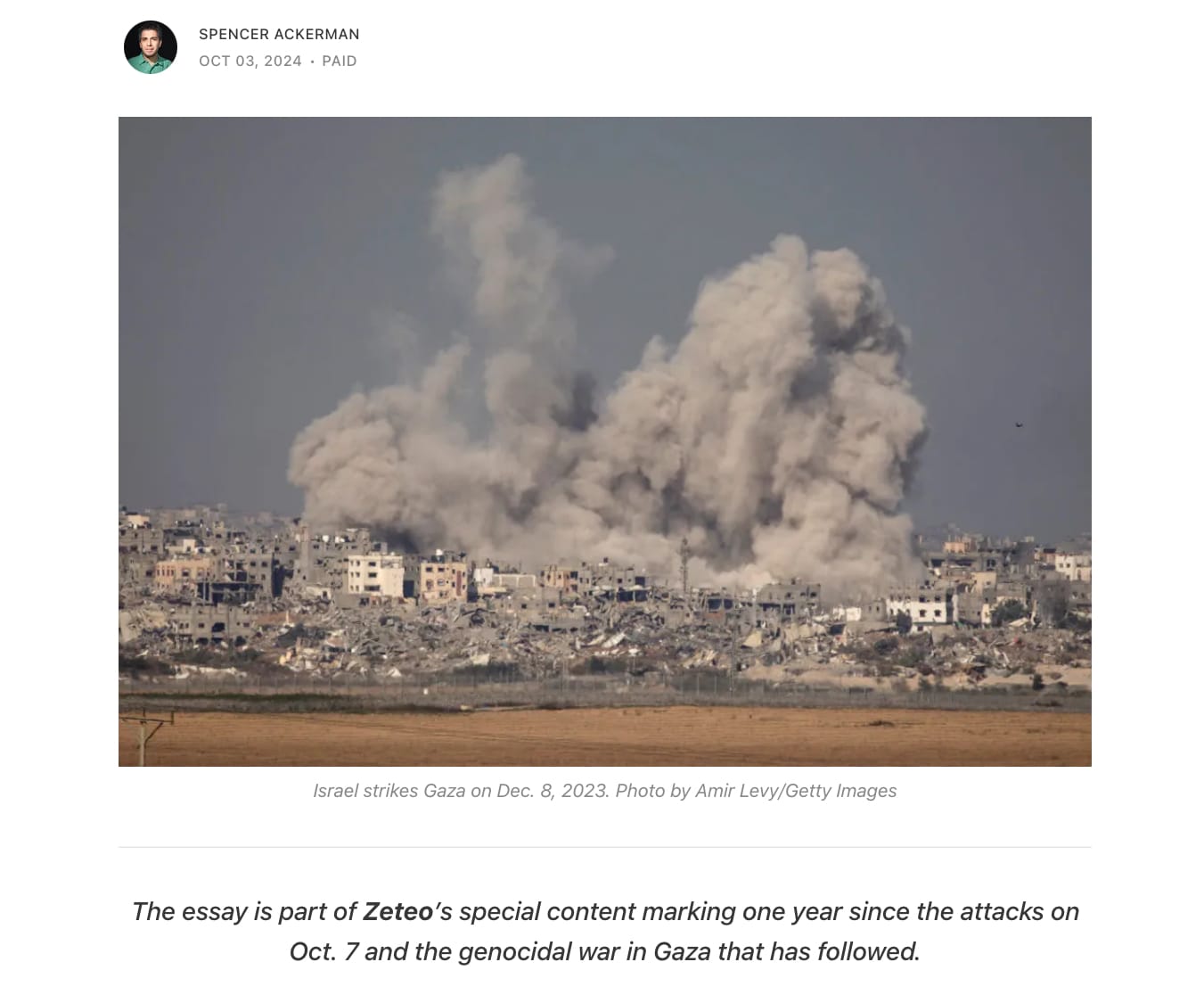The Year After October 7th Was Shaped by the 23 Years After September 11th (Director's Cut)
9/11 gave Israel and the US a template to follow—one that turned grief into rage into dehumanization into mass death. What have we learned from the War on Terror?

9/11 gave Israel and the US a template to follow—one that turned grief into rage into dehumanization into mass death. What have we learned from the War on Terror?
Edited by Zeteo
IT'S THAT AWFUL DAY. I'm in a strange place, spiritually speaking, caught between a purely material way of being that I'm familiar with and a place of unfamiliar seeking that my oldest child kindled years ago that I've decided to stop ignoring. It's appropriate for the Days of Awe, the holy period of reckoning between the Jewish New Year and Yom Kippur, the day of atonement. I told myself I was going to start a Daf Yomi this Rosh Hashanah—a cycle where Jews worldwide read a page of the Talmud every day; and after seven and a half years, you've read the whole thing—and so far, I haven't. So I'm summoning the spiritual fortitude to open my Sefaria app and get to it. One day I won't be alive anymore, and I'd prefer that day to come after I've exposed myself to the wisdom of the sages. I could use it at a time like this.
The piece you'll see below, which I wrote for Zeteo, is, I think, some of my best writing of the past year. It's an attempt to step back and examine the inheritance this past year of horror received from the 9/11 Era. It's only available to subscribers, so if you'd like to read it, you'll need to subscribe.
But before I turn to that piece, I want to highlight a few others. My friend Matt Duss has a great one at The New Republic. Not only does Matt resurrect a Benjamin Netanyahu quote from after 9/11 that I don't think I knew, he ends with a challenge to those who work in the machinery of the Rules-Based International Order: "The architects of this policy will tell themselves, each other, and us that they did their best, that they made the least bad of the bad choices that confronted them. Those of us who work in this community don’t have to believe that."
The next one is from Barney Rubin, one of few people who understood Afghanistan and who had the ear of U.S. officials during the 20-year war. It's only superficially a response to Bret Stephens, who I don't think is worth wasting brain cells on. More profoundly, Barney marshals Jewish history and tradition to challenge Zionism. "Masada may fall again, even if today’s Sicarii do not realize that they are committing suicide. If it does, a modern Ben Zakkai will have to teach us to live without a super-militarized, supremacist state." If those references don't make sense to you, read the whole thing. In this world of Bret Stephenses, be a Ta-Nehisi Coates.
Finally, I want to go back to something I wrote in the immediate aftermath of 10/7. War is dehumanization. Our challenge is to resist both war and dehumanization—not to embrace war on grounds of dehumanization; and not to excuse dehumanization by wielding pain as a rationalization. At a moment not only of reckoning but also the threshold of war with Iran—U.S. Central Command's Gen. Erik Kurilla has just met with Israel's Lt. Gen. Herzi Halevy "with an emphasis on Iran and the northern front"—I found solace and fortification in this statement from Jewish Voice for Peace: "As Jews, many of us are the descendants of those who survived genocide and ethnic cleansing. Our ancestors taught us to never be bystanders in the face of injustice. We are all responsible for taking action to change the course of history and to defend the millions of lives that hang in the balance." Whoever saves a life saves the entire world. We have innumerable worlds to save.
OK, now the piece. If you'd like to read it—and frankly, it's pretty good, especially the final grafs—subscribe to FOREVER WARS.

